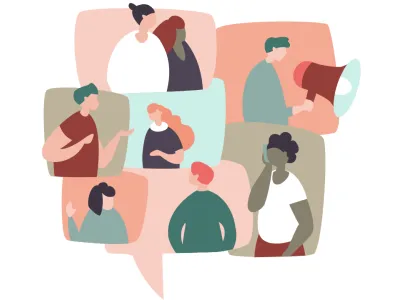Twin Cities Energy Efficiency Cohort now hiring efficiency navigators

Published November 14, 2024
In Minnesota, dozens of programs are available to ratepayers to make their bills more affordable, their homes more energy efficient, and their appliances safe and up to standards. However, the vast array of programs available can be daunting and overwhelming, and many who are eligible don’t receive all the benefits they could.
The Energy Efficiency Peer Learning Cohort, a collaborative group of local organizations and community members in the Twin Cities metro, has been meeting for years to create a better understanding of the energy needs of underserved communities who would benefit from these programs. Out of these conversations came the Cohort Community Navigator pilot. This service will connect community members to energy programs that can help them reduce energy bills and make their homes healthier, more energy efficient, and more comfortable.
Last December, we provided an update on efforts to build the community-based navigator program. A lot has happened since then.
- Funding secured: Funding is a critical part of making the navigator program a reality. The cohort, sponsored by Community Power, has secured significant grant funding from multiple sources including: McKnight Foundation, Environmental Protection Agency (EPA) The Environmental Justice Collaborative Problem Solving (EJCPS) Program, and the Department of Energy Buildings Upgrade Prize.
- Program Development Manager hired: In February Community Power hired a Program Development Manager. This position is a full-time role dedicated to implementing the Navigator Program.
- Advisory Group formed: An Advisory group composed of an advisory group composed of representatives from several Twin Cities community organizations including EastSide Freedom Library, Community Stabilization Project, and Powderhorn Park Neighborhood Association, as well as several individuals directly connected to energy efficiency and community organizing in Minneapolis and St. Paul. The council began monthly meetings in September and will continue to do so throughout the entirety of the pilot. Their role is to provide direction and insight into the creation of the Navigator program and ensuring its development stays true to the Cohort’s guiding principles.
- Planning Team setting ground work: Representatives from Community Power, Center for Earth Energy and Democracy (CEED), and CUB meet regularly to manage the implementation of the program, including developing evaluation structures and identifying funding sources.
Big steps are ahead for this initiative. With the hiring of two navigators, the program will start its beta phase to initiate home upgrade work in February with community members. This beta phase will serve as a training period and opportunity to get details arranged for a full launch in the summer of 2025 and continue through the end of 2025. The ultimate goal is to secure sufficient funding and support to make this a permanent program that can be replicated and/or integrated throughout the state.
Still ahead, the program aims to:
- Identify the neighborhoods the program will perform its work in during the pilot period. Special emphasis is being placed on Justice 40 neighborhoods found in Minneapolis and St. Paul.
- Collaborate with community-based organizations deeply connected to neighborhoods. Many of these organizations have been extensively involved in the planning of the program since its inception, and their contributions will be essential to the success of the program, in the form of financial, administrative, and promotional support.
- Build public knowledge of the program via tabling, community connection, and other forms of outreach.
- Hire navigators to continue building capacity of the program.
- Continue seeking funding and identify long-term institutional partners to house the program beyond its beta and pilot phases.
As a founding member of the Energy Efficiency Peer Learning Cohort, CUB is very happy to see the navigator program come to fruition. We believe that the program will benefit Minnesota communities and create a framework for others to follow in the future. We’ll continue to support this work and keep you updated on the status of the program.